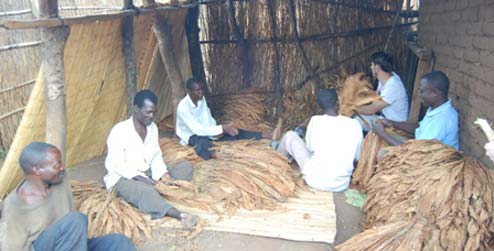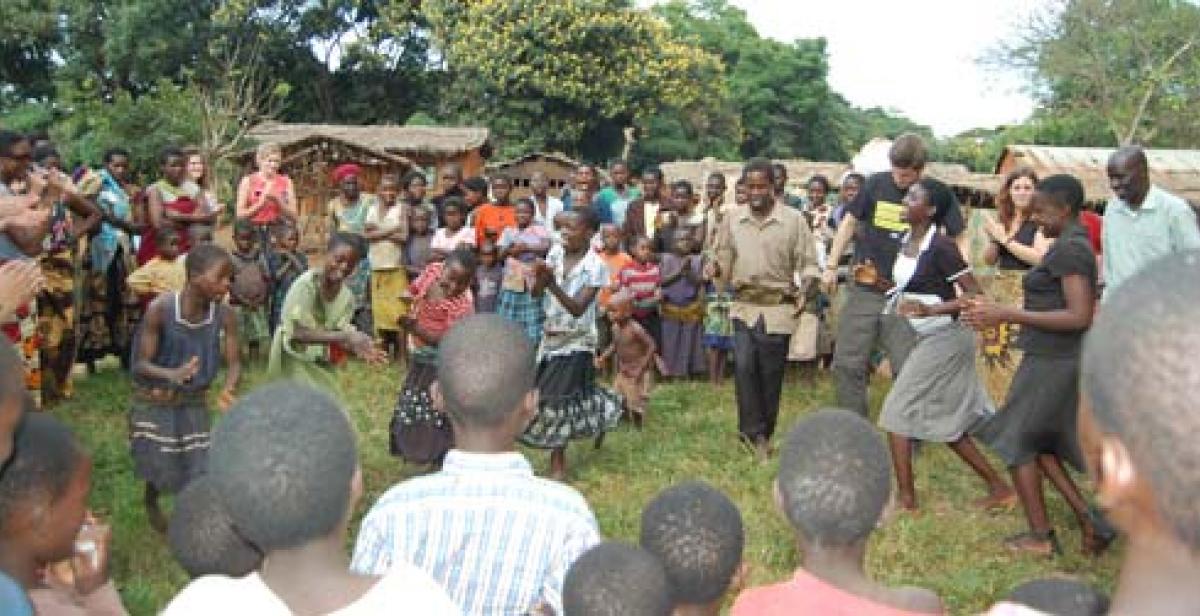We arrived in Lilongwe the capital of Malawi on the 3rd of April. As we drove from the airport to our accommodation we saw local men and women walking along the roadside: there were no separate pavements, only roads. The Malawian women looked beautifully poised as they skilfully balanced heavy baskets on their heads - some of them were even able to ride bicycles simultaneously!
We stayed in a convent during our 12 day in-country orientation training which began with a presentation from Manerela, the organisation we are working with in Malawi. Manerela stands for ‘Malawian Network of Religious Leaders Living with or Affected by HIV/Aids’. Thomas, one of the co-ordinators for Progressio Malawi, gave us some insight into the history of Malawi. We learnt that many Malawians rely heavily on agriculture to survive. Maize crops are most commonly grown and sold here and maize is used to make Nsima, a staple food in Malawi.
During orientation we were also taught the basics of Chitumbuka - this is the language spoken in Mzimba where we will be staying for the remainder of our time in Malawi. Mzimba is situated in the northern region of Malawi and is the biggest district. Our language teacher is a native Malawian woman named Shupe, she has taught hundreds of students from around the world including English, Japanese, and German students.
Throughout the in-country orientation we learnt extensively about the Malawian culture from an enthusiastic and surprisingly candid teacher named Francis. He taught us about the Malawian government, their Chiefs and various initiation stages that young boys and girls go through.
On the fifth day we visited one of the local markets where the girls were able to buy a Chichenje. A Chichenje is a traditional wrap that young girls begin wearing after they reach puberty and have their first period and it signifies that they have entered womanhood.
After many in-depth culture sessions, which included being prepped on etiquette and appropriate dress, we visited the village. The Chief's house was strategically positioned in the centre of the village and as we entered we had to clap our hands to show respect. We were introduced to the Chief’s wife Daisy Kaloola, which was a great honour, and we were told that in Malawian culture “the wife of the Chief is the cornerstone of the family” and “when you find her you find the community”.

After meeting Daisy Kaloola we then visited the former Chief’s wife Christina Kaloola and we helped Christina prepare a traditional meal while the boys in our team went out into the tobacco fields to see how the tobacco was made. We were informed that Malawi produces more tobacco than anywhere else in the world.
We are all in good spirits and cannot wait to get to Mzimba and begin working on our projects! Everybody we have met in Lilongwe has been so friendly and helpful, I can now see why Malawi is known as the “warm heart of Africa”.
By Progressio ICS volunteer Tashann Barnett. Photos by Progressio ICS volunteer Otis Lacey. Photo top: taking part in traditional dancing during a visit to a village. Photo bottom: Progressio ICS volunteer Daniel Bottiglieri helps with the sorting of tobacco leaves.




Comments
I have been reading a little
I have been reading a little about what you are trying to achieve and I am impressed and I would like to learn more about the sort of work volunteers are expected to be doing. It would be lovely to hear from you.
[Editor's note: Keep an eye on the Empowered blog for more updates from Tashann in the coming weeks!]